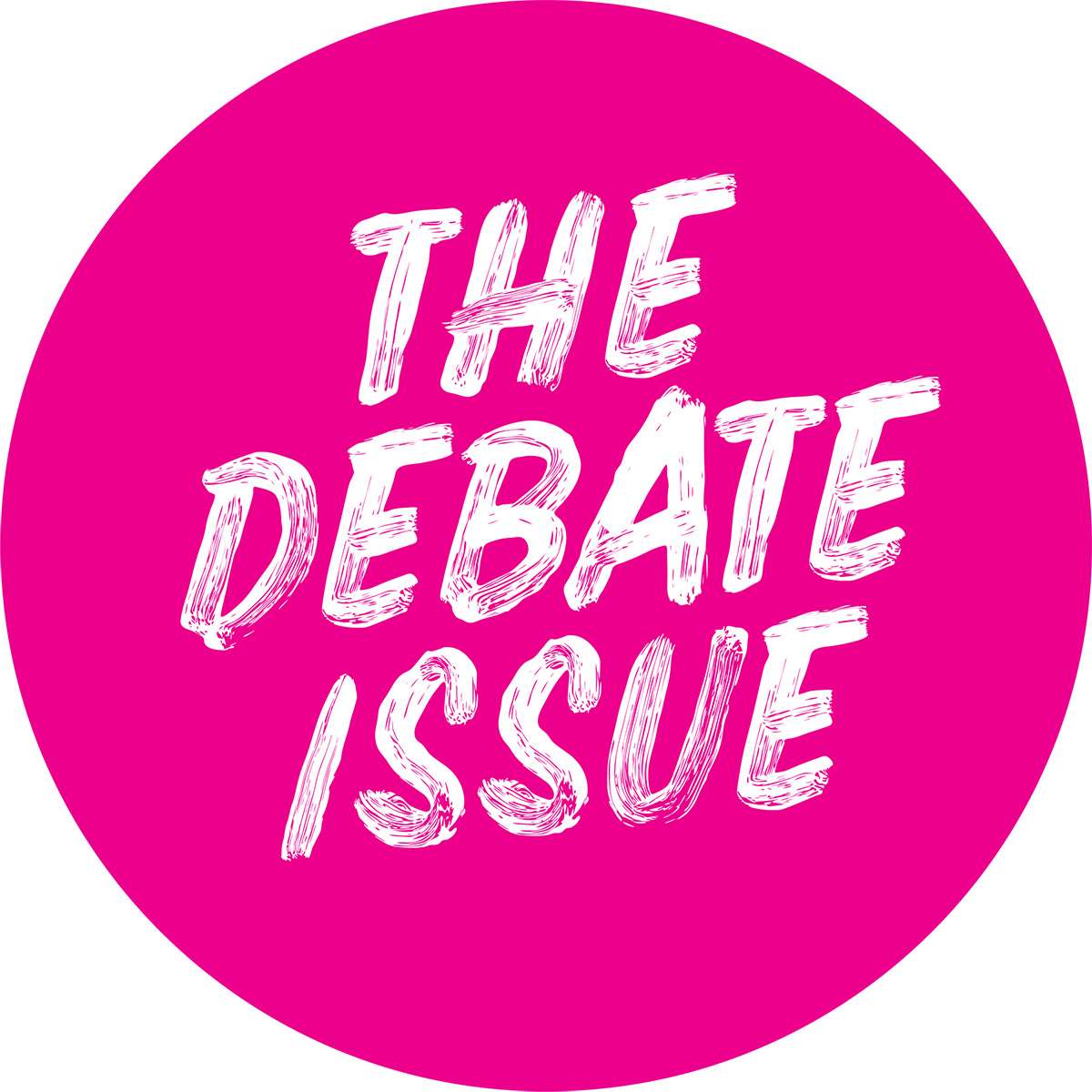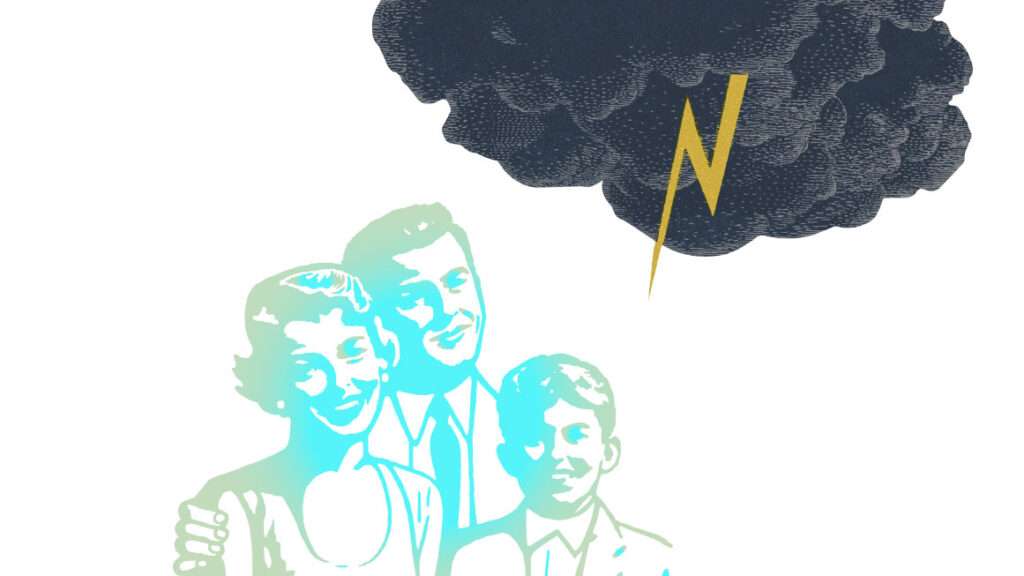Debate: Be Optimistic About the World
Can we relearn how to leave each other alone?

Optimism Is the Rational Approach
Affirmative: Katherine Mangu-Ward

Scanning the headlines or checking your bank statement, it's easy to succumb to pessimism. Humans are wired to focus on the negative—a useful trait in a dangerous environment characterized by scarcity, to be sure—so we are by nature a wary, gloomy, and regretful species. But a clear-eyed analysis of the conditions in which we live and the direction of most trend lines reveals a larger truth: Optimism is the only rational outlook.
Let's stipulate that politics—domestically and globally—are legitimate cause for pessimism among those concerned about the rise of populist authoritarianism and the decline of liberalism and pluralism. To worry about politics isn't irrational; there have been times in human history when the political outpaced and swallowed the personal, private, and commercial.
Now is not one of those times. The world outside of politics continues to get bigger, richer, and more interesting every day. We are all swimming in the primordial soup of the Great Enrichment; more than 200 years of spectacular increases in wealth, health, education, mobility, and choice that extends around the globe. In 1820, 84 percent of people lived in extreme poverty; today that number is 8 percent. In 1820, 90 percent of the world's population was illiterate; now it's 10 percent.
Improved medical technology and delivery systems have put beating HIV/AIDS, smallpox, measles, Guinea worm disease, and even COVID-19 within reach. Contrary to the gloomy predictions of the 1970s, a wealthier world is also one that values environmental recovery and conservation: In Uganda, for example, the population of elephants has grown nearly 300 percent since 2005. The top minds of our generation are pursuing promising technologies to mitigate the effects of climate change.
Americans are working fewer hours than ever before to afford the necessities of life, but the gains are even more remarkable in developing nations. "A person in China working eight hours a day to earn enough money to buy food in 1960, would only need to spend around 18 minutes to do the same in 2021," writes the Cato Institute's Marian L. Tupy. "The Chinese gained 7 hours and 42 minutes a day to do with as they please. Indians gained 6 hours and 30 minutes a day over the same period."
Wealth is more than just money. It's free time and freedom. Billions of people with hours and energy to spare are the world's ultimate resource and the greatest cause for optimism.
Even when we know these statistics, it's hard to keep them top of mind on a bad day. But we must. A collective bad mood—especially among disproportionately wealthy and powerful Americans—can create a vicious cycle of culture-war fearmongering that empowers tyrants and squelches innovation. Be rational. Be optimistic.

The Dream of Being Left Alone Is Dead
Negative: C.J. Ciaramella
Supreme Court Justice Louis Brandeis said that "the right to be let alone is the most comprehensive of rights and the right most valued by civilized men." By that standard, we're descending into barbarism and it's hard to muster anything but pessimism for the future.
Both the right and the left in America—and a small but vocal faction of self-described libertarians—have turned their backs on the very American value of minding your own damn business. Unmoored from any limiting principles, these camps are clamoring to use government power against their enemies and to do away with viewpoint neutrality in the public square. The feckless left frets about "disinformation," while the right daydreams about banning pornography and getting religion back in schools. Former President Donald Trump recently said that, if he is reelected, the federal government will take over school discipline from local districts.
The future these busybodies would prefer isn't a secret: loyalty pledges, intense policing of language, state retaliation against disfavored businesses and groups, increasingly centralized power and micromanagement of local affairs. People like to say all politics is local, but local politics are now all national too. Every public space and even many private ones become contested ground. And when a culture war achieves the totality its proponents desire, it ensures you cannot be left alone.
This sort of snitch state already exists in Russia and China, and the global outlook for liberal democracy is not promising. Narendra Modi's India is sliding into militant ethnonationalism, and Viktor Orbán's strongman government in Hungary has many admirers in Europe and the United States.
The point of waging a culture war isn't to win. It's to convince people that you need to be given more power to fight it. Hence the calls from the nationalist right for a muscular "wartime conservatism," which doesn't have room for any nerds bound by classical liberal values. Each side claims it is in an existential battle with the other, so there can't be any deescalation or truces. If you want a picture of the future, imagine Proud Boys and antifa punching each other in the face outside a drag show, forever.
Meanwhile, the expansion of facial recognition technology and police surveillance will make it harder in a literal sense to maintain a private life.
None of this bodes well for a libertarian interest in living freely or just having a normal, peaceful community. Even if the U.S. isn't Balkanized in the next decade, it's hard to see how our politics can get better in this climate—and even harder to see how we can regain a respect for leaving each other alone.
Subscribers have access to Reason's whole May 2023 issue now. These debates and the rest of the issue will be released throughout the month for everyone else. Consider subscribing today!
- Debate: It's Time for a National Divorce
- Debate: Artificial Intelligence Should Be Regulated
- Debate: Democracy Is the Worst Form of Government Except for All the Others
- Debate: To Preserve Individual Liberty, Government Must Affirmatively Intervene in the Culture War
- Debate: The E.U. Was a Mistake
- Debate: The U.S. Should Increase Funding for the Defense of Ukraine
- Debate: Mentally Ill Homeless People Must Be Locked Up for Public Safety
- Debate: Despite the Welfare State, the U.S. Should Open Its Borders
- Debate: Cats Are More Libertarian Than Dogs
- Debate: Make Housing Affordable by Abolishing Growth Boundaries, Not Ending Density Restrictions
- Debate: Bitcoin Is the Future of Free Exchange
- Debate: Be Optimistic About the World


Show Comments (72)